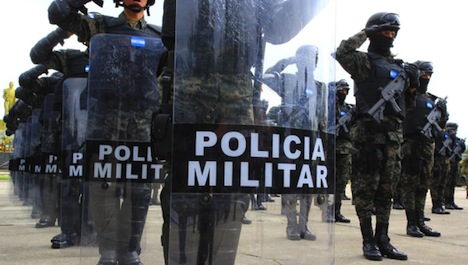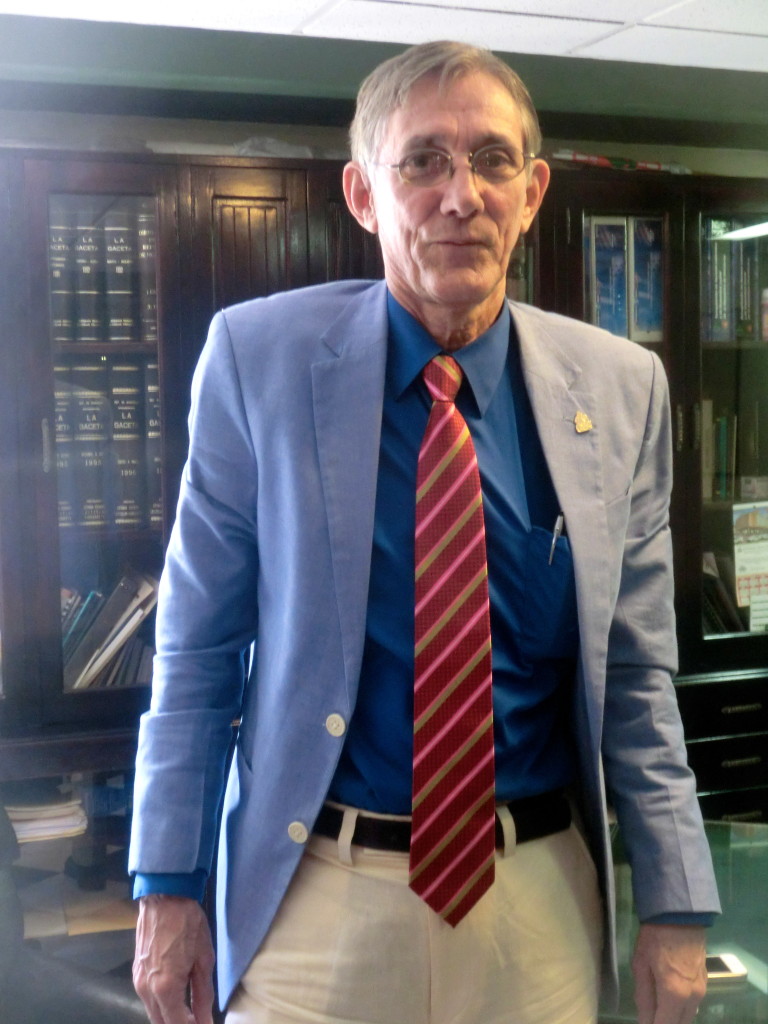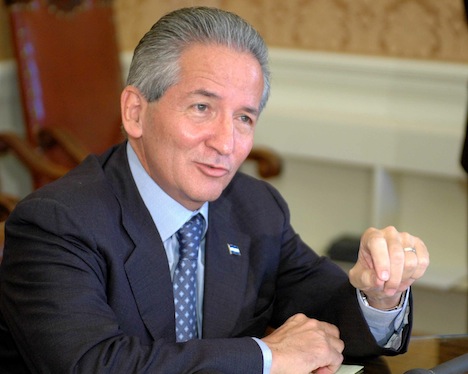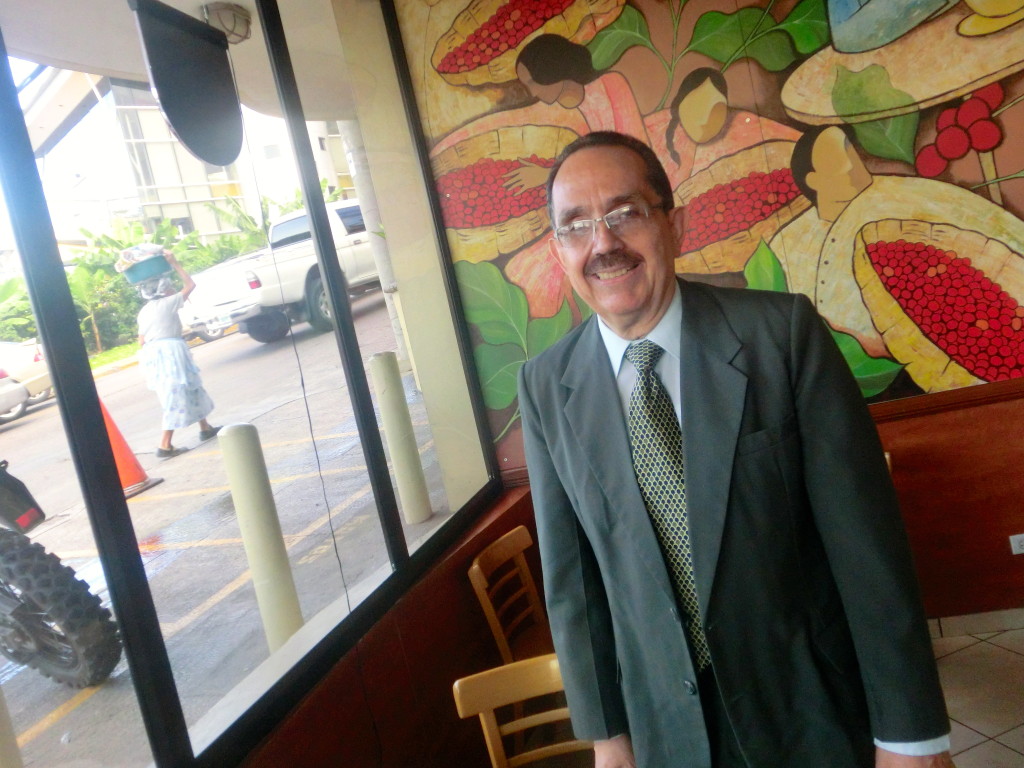
TEGUCIGALPA — Rasel Tomé, a tall attorney with striking blue eyes, slick jet black hair and a mustache to match, and dressed in a pastel guayabera shirt, looks every part the leftist Latin American revolutionary that you might have thought belonged to a radical generation from half a century ago.
Tomé, whose roots are in Olanchito on Honduras’s north coast and whose family worked in the ubiquitous banana companies that dominated the Honduran economy and captured its government for much of the early and mid-20th century, was a legal adviser to former president Manuel ‘Mel’ Zelaya, who was ousted by the military from the Honduran presidency in June 2009. Ostensibly due to his push to amend the Honduran constitution to allow for presidential reelection, Zelaya spent much of his presidency edging further to the left, away from the United States and toward Venezuela and its ‘Bolivarian’ socialist allies within Latin America.
But Zelaya is back. His wife, Xiomara Castro de Zelaya, is one of two frontrunners in this weekend’s general election, and she represents one side of a choice so polarizing that both sides speak about the take-no-prisoners campaign as if it’s a civil war. Even if it’s a cold civil war, there’s no doubt that the 2009 coup still dominates the political debate here.
‘In Honduras, there’s a debate of two thoughts,’ said Tomé, a congressional candidate running on the Castro de Zelaya ticket, comparing the election to the choice that Abraham Lincoln faced during the US civil war. ‘The ones that believe that this model of inequity and inequality should keep going, with the privileges to the elites, holding onto the constitution that was created in 1981 and that has been violated and destroyed by the coup d’état. And there are the ones that consider that to move society forward, we need a new social pact… we can abide by it generation by generation into the future, that it will be the starting point for our country.’
Tomé helped found the Movimeinto Resistencia Progresista (Progressive Resistance Movement) that opposed the 2009 coup, one of five popular movements that joined forces to form the Partido Libertad y Refundación (Party of Liberty and Refoundation) two years ago — popularly known as LIBRE, an acronym that plays on the Spanish word for ‘free.’ LIBRE, in many ways, is the first truly leftist party in Honduran political history with a chance of winning power in Honduras, and its candidate is Zelaya’s wife, Xiomara Castro de Zelaya.
Throughout much of the 20th century, including after the return of regular elections in 1981, Honduran politics has been mostly a contest between two competing elites — those in the conservative Partido Nacional (National Party) and those in the more centrist Partido Liberal (Liberal Party). Manuel Zelaya, a wealthy rancher from eastern Honduras, was himself part of the Liberal Party elite when he was elected president in 2005.
Though I met several LIBRE activists over the course of a week in Tegucigalpa, none were quite as compelling as Tomé — in a country where politics has often been a cynical game of spoils between competing sets of elites (including, by the way, the Zelayas, whose family members are rumored to have profited handsomely by Zelaya’s first term in office), many Hondurans see both the Zelayas and their chief opponent, Juan Orlando Hernández, the candidate of the governing Partido Nacional (PN, National Party) as two sides of the same ineffective coin — and they have little hope for the other main candidate in the race, Mauricio Villeda of the Partido Liberal (PL, Liberal Party). Tomé admitted as much.
‘Villeda is the son of an ex-president,’ Tomé said. ‘[Outgoing president Porfirio] Lobo Sosa’s father was a congressman many times over. Juan Orlando, his father was the governor of a sector of the country. Manuel Zelaya has been in the political running for the last 30 years. So people who have a panoramic view see them as people who belong to the same category.’
Tomé added, however, that the Zelayas have now put themselves in the service of the people as a vector for change.
It was an impressively honest answer, but it also highlights the tension between the Zelayas and the activists who could power Xiomara into the Honduran presidency on Sunday. If she succeeds, she’ll have a dozen interest groups with high hopes of social and economic transformation, all of whom will want her to push for more change than any one president could possibly deliver at a time of joint security and economic crises — especially with the possibility that no party will win an absolute majority in the unicameral Congreso Nacional (National Congress).
When I met Tomé two weeks ago, he showed up with another associate, and they unfurled their campaign banner.
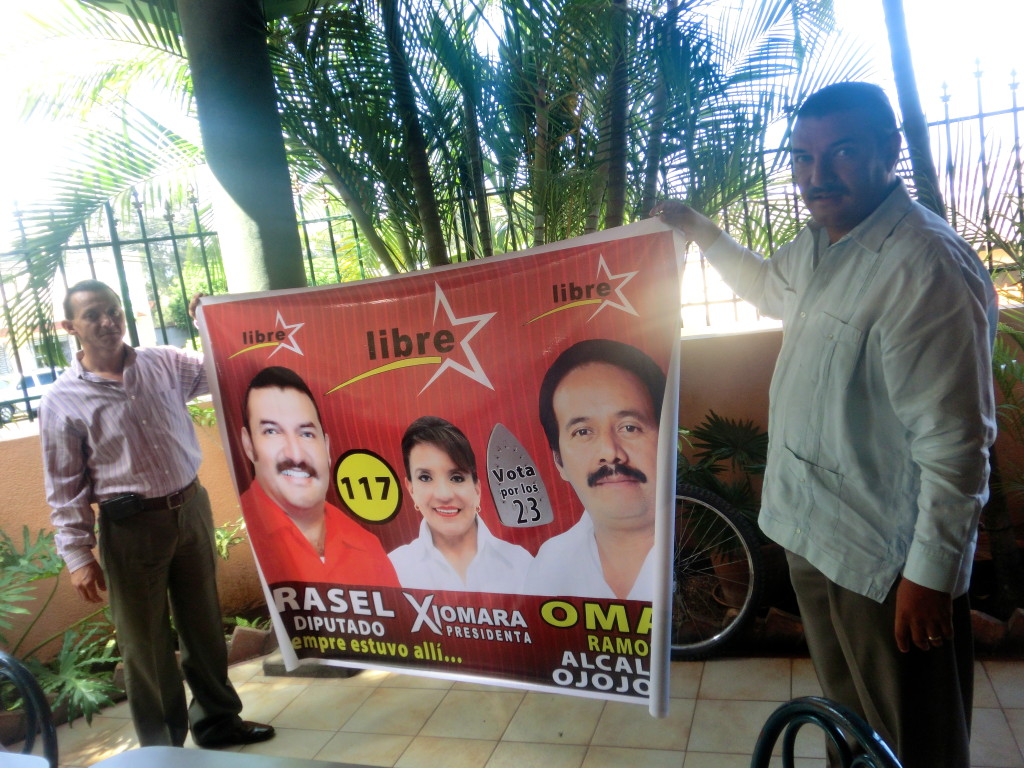
Tomé held forth for nearly an hour on over a dozen issues relating to the Honduran campaign — in contrast to the controlled and stilted interviews that LIBRE’s presidential candidate has given to the media (often alongside her husband, which has done nothing to dispel notions that her candidacy represents a second term for Mel Zelaya), Tomé has a compelling style that makes you wonder if he might not be LIBRE’s presidential candidate in four years’ time.
Tomé spoke earnestly on several topics — economic opportunity, the role of the military, LIBRE’s position in favor of community-based policing, the Central America Free Trade Agreement, and US-Honduran relations. When I spoke to Tomé on November 6, it was the morning after Bill de Blasio overwhelming won the New York City mayoral election, running on a platform that emphasized reversing income inequality perhaps more than any US politician in recent history. Though inequality is a global trend, you might say Honduras is in the vanguard of that trend. As of 2009, the World Bank recorded a Gini coefficient of 57 in Honduras, the highest in Latin America and one of the highest in the world, outpacing Brazil (55), one the poster child for income inequality, Mexico (47) and the United States (45, as of 2007). That’s staggering for Honduras, where people once joked the country was so poor it didn’t even have a proper oligarchy. Continue reading An interview with Rasel Tomé, LIBRE party founder and congressional candidate →
![]()
